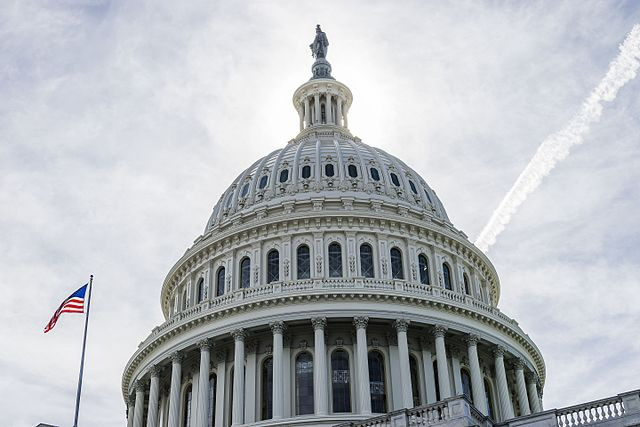Government Shutdown Looms as Congress Faces Deadline
As the October 1 deadline approaches, the U.S. Congress is racing against time to avert a government shutdown. With just three weeks left, lawmakers are struggling to reach an agreement on funding, leaving many federal agencies at risk of halting operations. The urgency of the situation has intensified as Congress reconvenes, and the stakes are high for both parties.
Current Situation
According to a recent report from NBC News, Congress has little time left to finalize a funding bill that would prevent a government shutdown set to begin at 12:01 a.m. on October 1. The report highlights that lawmakers are currently nowhere near an agreement, which raises concerns about the potential impact on federal services and employees.
Key Developments
Funding Bill: Earlier this year, President Biden signed a $1.2 trillion government funding bill after heated negotiations. This bill was crucial in averting a previous shutdown, but the current situation is precarious as the new deadline looms.
Bipartisan Efforts: In a recent session, the Senate voted 74-24 to pass the funding bill, showcasing a rare moment of bipartisan cooperation. However, the ongoing divisions within the House GOP complicate efforts to secure a similar outcome in the House.
Political Dynamics: The political landscape is further complicated by the influence of former President Donald Trump and other prominent figures who are pushing for a more aggressive stance against Democrats. This has led to a divided Republican party, with some members expressing reluctance to support a shutdown.

Recent Articles and Updates
NBC News reported on September 9, 2024, that Congress is under pressure to finalize a funding agreement. The article emphasizes the urgency of the situation, noting that time is running out to prevent a lapse in funding.
CNN also covered the Senate's recent actions, highlighting the $1.2 trillion funding package that was passed to avert a partial government shutdown. The article details the last-minute negotiations that took place to secure the necessary votes.
The New York Times provided insights into the bipartisan efforts that led to the passage of a stopgap bill, which was crucial in preventing a government shutdown just hours before the deadline.
Implications of a Shutdown
If Congress fails to reach an agreement, the consequences could be severe. A government shutdown would mean:
Federal Employees: Hundreds of thousands of federal employees could be furloughed, leading to financial uncertainty for many families.
Public Services: Essential services, including national parks, museums, and various government programs, could be closed or severely limited.
Economic Impact: A shutdown could have broader economic implications, affecting everything from government contracts to public confidence in the economy.
Looking Ahead
As the deadline approaches, all eyes are on Congress. Lawmakers must navigate their differences and find common ground to ensure that the government remains funded. The next few weeks will be critical in determining whether a shutdown can be avoided.

Key Articles to Follow
- Government shutdown looms as Congress returns with just three weeks to avoid it - NBC News
- Biden signs the $1.2 trillion government funding bill - NBC News
- Senate passes funding bill to avert partial government shutdown - CNN
In conclusion, the government shutdown remains a pressing issue as Congress grapples with funding disagreements. The coming weeks will be pivotal in shaping the future of federal operations and the well-being of countless Americans who rely on government services.





